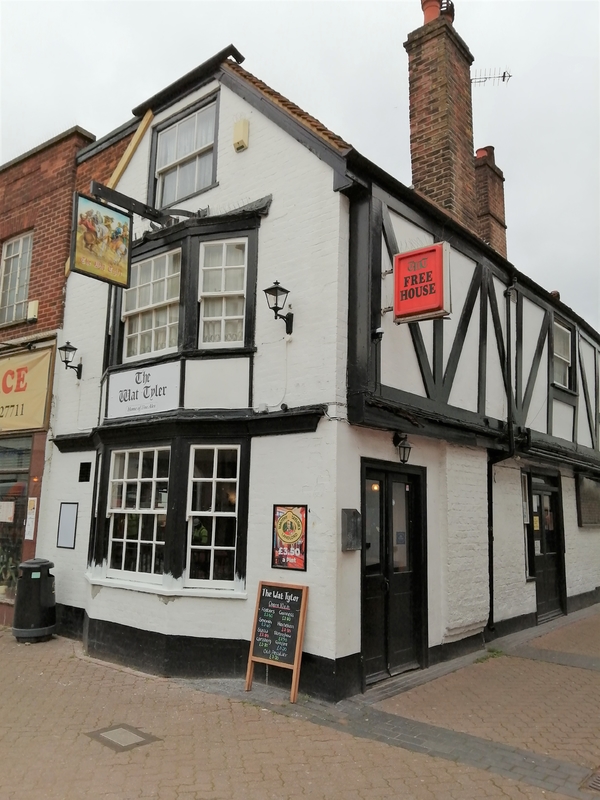A pint of Landlord gives hope for cask
Added: Monday, March 30th 2020

Five favourite words formed on my lips: “A pint of Landlord, please”. The custodian of the pumps set to and presented me with a glass of Yorkshire’s finest and then said something unbelievable: “That’ll be £3.50”. I gulped in every possible way, got change – a lot of it – from a fiver and proceeded to sip and savour one of the greatest examples of the brewers’ art at a knockdown price.
The pub is called the Wat Tyler in Dartford in Kent. It dates from the 15th century, has a half-timbered exterior and beams and settles inside. As I nuzzled my pint I thought I had been caught up in one of those TV dramas where people walk through a door and find themselves back in the 1950s.
In my case, in celebrating the leader of the Peasants’ Revolt, I had slipped back even further to the 14th century. Perhaps I should have paid for my beer in groats, not pounds.
When I mentioned my experience on social media I was firmly rebuked. No one could make a living selling beer that cheap, my critics said.
My outing to Dartford came at the same time as I read the back page piece in last month’s What’s Brewing by James Calder, the chief executive of SIBA, the Society of Independent Brewers. James’s theme was a daunting one: cask beer is doomed unless brewers, drinkers, and consumer organisations take joint action to save it. One point he made struck home: beer quality. Cask beer requires skill and commitment to look after, from cellar to bar, and drinkers will not put up with beer that’s poorly kept and served.
In contrast to that impeccable pint in Dartford, the nearest pub to my home in St Albans – I won’t call it my local as the city has many better hostelries – is a Mitchells & Butlers Ember Inn. I’m told that sales of cask beer in M&B pubs, to prove James Calder’s point, are in free fall. It’s not surprising. On a recent visit the only cask beer on offer was Marston’s Pedigree. I handed over rather more than £3.50 and was given a drink that even the manufacturers of Sarson’s vinegar would say was unfit for consumption.
As a creature of habit, I will go on making cask ale my beer of choice but many people won’t. If they are sold an undrinkable pint, they will move on to the certainties of beers that require no more skill than connecting a keg to a gas cylinder.
I disagree with James Calder on the need to “premiumise” – ugly word -- real ale. I cannot accept that cask beer should be seen as the drink of choice of the better-off. It was clear to me that one reason the Wat Tyler in Dartford was busy on a damp, cold Tuesday lunchtime in March was that its captive audience was made up of people who couldn’t afford more than £3.50 for a pint.
Rather than turning real ale into a drink consumed by people who shop in Waitrose, we need to look at the way in which it’s taxed and priced. John Keeling, the former Fuller’s head brewer, has argued the case for cask beer to have a preferential rate of duty, perhaps at the same level enjoyed by cider.
CAMRA has now broadened the argument and calls for lower rates of duty for all draught beer. The aim is to support pubs that face unfair competition from supermarkets selling beer at deep discounts.
James Calder is right to highlight the problems facing cask beer but I don’t agree its salvation lies in making it a premium product. Real ale should be the People’s Pint and that means it has to be affordable.
•First published in What’s Brewing, April 2020.





